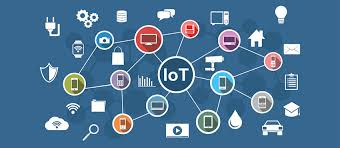Of course you have found the use of the term Internet of Things out there, in the midst of analyzing trends in society and markets in the future, but you may have been lost in that concept. After all, what is called the Internet of Things? And how does it affect the automotive segment?

The concept of the Internet refers to the connection of various objects with the internet, in addition to what we are used to, such as smartphones, tablets, and computers. The internet has also revolutionized the world of online gambling with the emergence of many gambling sites including onlinecasinodeutschland.com.de.
Through this technology, for example, most household appliances besides your current Smart TV – and your own home – will be integrated into one network. Of course, this also includes your car.
These objects, combined with an automated system, can help gather information in real time, analyze it, and make response actions as needed.
In this way, the Internet of Things is no more than an expansion of connectivity. This connectivity is no longer limited to your cellphone or desktop, it will involve every aspect of your life. All electronic devices in our daily lives may soon be connected to each other.
How is the automotive industry?
In recent years, consumer demand to improve connectivity in all aspects of life has grown. We moved from smart phones to smart homes. While the Internet of Things is already present on watches and thermostats, one segment that embraces this new way of using technology is the automotive industry.
It is estimated that by 2020, more than 250 million vehicles worldwide will be connected, forming information networks, data, and consumer experience.
With connected cars becoming a top priority for consumers, many things change in the automotive market. It is important to explore how the Internet of Things has affected the automotive industry. And then prepare for the inevitable changes that will emerge in the coming years.
Looking for the perfect custom experience
Today consumers don’t see cars as an important tool for mobility. Models, colors and accessories have become a way of expressing personality. The vehicle is basically adjustable. But Internet of Things technology brings this to a level that has never been imagined before.
At the same time, there is the ability to connect smartphones to cars, creating a more integrated experience. Imagine an increasingly common scenario from users listening to podcasts over coffee; when they leave home and enter the car, they continue to listen to the same content. Driving is no longer an isolated activity, but is connected to all other aspects of the user’s life.
The concession holders cannot be transformed in the face of a new reality from the Industry
Internet Things services also offer many practical opportunities. One of them is the ability to monitor vehicle health and alert drivers to problems. This type of connectivity gradually becomes hope, not luxury anymore. And they will be increasingly demanded by consumers who want technology.
Some brands, such as Tesla, have shown the possibility of improving the car system through technology, eliminating the need to spend more time at a dealer or in a mechanical shop. With the compaction of the Internet of Things in our daily lives, the process of buying and life cycle of vehicles will be greatly affected.
As a result of changes in retail, new business models are changing the traditional automotive structure. New products, services and solutions emerge for various customer needs. Vehicle sales will spend more time dedicating themselves to customer relationship management. The value chain begins to question how to create repeat and long-term relationships with your customers. This can cause repositioning of dealers in the future.
Leave a Reply